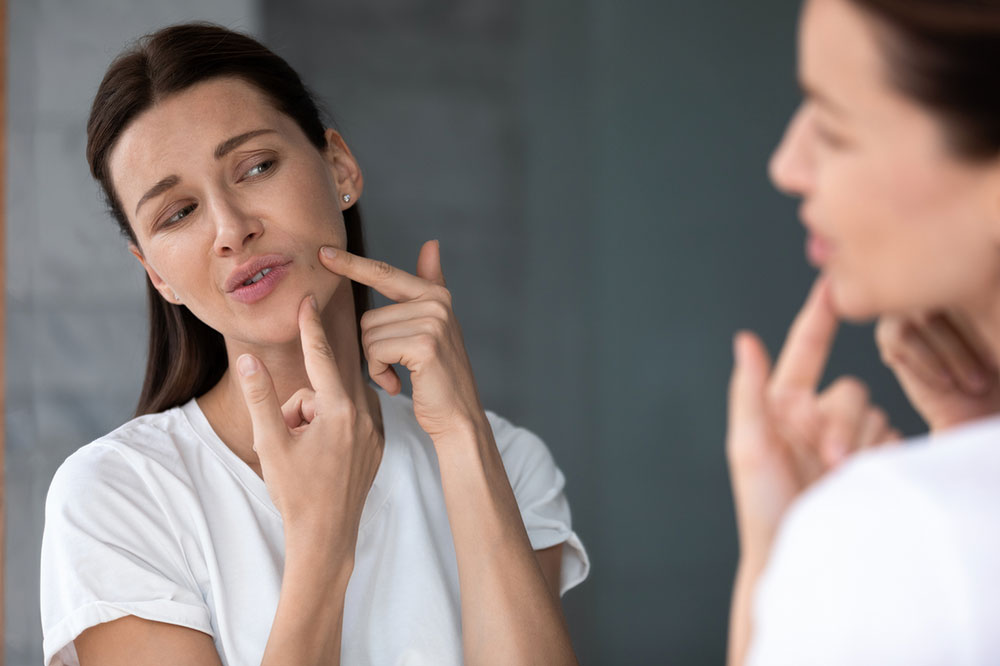8 poor habits that worsen skin health

Clear skin is rarely a result of sporadic visits to the salon or expensive treatments. To maintain healthy skin, one must consistently follow a combination of good habits involving one’s hygiene, food intake, and sleep patterns. At times, one may discover that no amount of store-bought products is able to heal one’s blemishes and acne. More often than not, the following poor habits may be the cause of one’s skin problems.
Not wearing sunscreen
Extreme UV exposure can cause skin irritation, pigmentation, sunburn, premature aging, or even skin cancer. One’s advised to apply sunscreen on exposed skin and wear sunglasses to protect one’s eyes. Sunscreen with a lightweight formula is more suitable for oily skin, while tinted sunscreen with built-in moisturizers can work well for dry or sensitive skin.
Using dirty makeup blenders, and brushes
Makeup brushes and beauty blenders can accumulate dirt and bacteria and cause skin infections. Cleaning them with warm water and gentle, non-toxic shampoo every one or two weeks can ensure better skin health.
Sleeping with makeup on
Makeup clogs the skin pores, damages skin cells, and prevents the skin from breathing or healing. This results in fine lines and acne breakouts.
Touching one’s face frequently
Hands come in contact with dirt, grime, and bacteria more frequently than other exposed parts of one’s skin. Touching unwashed hands to one’s face can transfer these bacteria and cause acne.
Unhealthy eating habits
Skin health is directly connected with one’s gut health. Toxins from highly processed and refined food get accumulated in one’s colon. These toxins then escape through the permeable intestines into one’s bloodstream and cause skin breakouts or acne.
Bad sleep schedule
The body begins repairing the skin and producing collagen during nighttime. So, sleeping at odd hours, not sleeping enough, or waking up too often during the night can disrupt this healing process. Sleep deprivation can also give dark circles, acne, cause skin dullness, and premature aging. In extreme cases, it can also lead to conditions like psoriasis and eczema.
Exfoliating too much
Exfoliation is a process that clears dirt and dead skin cells from the pores and keeps the skin nourished. But vigorous and frequent scrubbing can rob the skin of its natural oil and moisture, leaving it weak, dry, sensitive, and flaky. One’s advised to exfoliate gently only twice or thrice a week with products suitable to one’s skin type.
Not exercising regularly
Any type of exercise, including walking, jogging, working out in the gym, or dancing, is a great way to improve blood circulation in the body and skin. Exercise releases toxins from one’s body through sweating and clears the skin. It also releases stress, which is shown to hike one’s cortisol levels and cause acne and other skin aggregators.
Unhealthy habits puts one at a high risk of developing skin concerns. Many underlying skin conditions may further lead to prurigo nodularis, marked by severe itchiness. Prurigo nodularis results in bumps on the skin, referred to as nodules and can affect one’s arms, legs, back, abdomen, and buttocks.
Using certain skincare or makeup products, including soaps, oils, and shampoos, can trigger skin conditions such as eczema, leading to dry, itchy, and irritable patches of skin. Certain foods and allergens can also trigger eczema.






